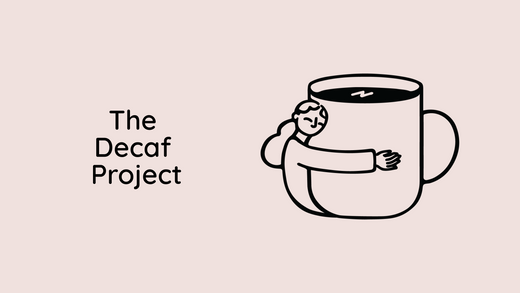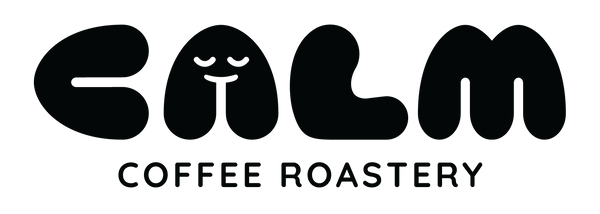
The Decaf Project
Share
The Decaf Project is an exciting initiative, spearheaded by renowned coffee professional James Hoffmann in collaboration with green coffee trader Caravela Coffee. The project provides coffee enthusiasts with the unique opportunity to explore how different decaffeination methods affect the flavour of coffee. A single lot of coffee from La Virgen in Huila, Colombia, was divided into four parts: one part remained as the original coffee, while the other three were decaffeinated using different methods - Carbon Dioxide (CO2), Ethyl Acetate (EA), and the Swiss Water Method. These coffees have been reassembled into sets containing one bag of each, and purchased by coffee roasters around the world. The coffees are soon to be roasted and sold as tasting kits allowing participants to compare the original coffee with its decaffeinated counterparts.
The Decaf Project will culminate in a global public tasting event in December. Hosted live on James Hoffmann’s YouTube channel, the event encourages participants to taste the coffees simultaneously from the comfort of their homes, following the same interactive format as the "World’s Largest Coffee Tasting. Of course if a brew-along doesn't sound appealing these coffees can be tasted and enjoyed at any time, by any brew method!
At Calm Coffee Roastery, we’re excited to have secured a small allocation of the Decaf Project coffees by splitting a set with another roaster. These will be available to purchase starting 20th November. We’ll roast and ship the coffees during the week commencing 2nd December, ensuring they arrive before the live tasting event. This is a unique chance for caffeine conscious coffee lovers to delve into the fascinating world of decaffeination and taste the effect that the common decaf processes have on a coffee.
Who is James Hoffmann
The leading figure behind the Decaf Project is James Hoffmann, a pivotal figure in the specialty coffee industry (who probably needs no introduction, but will get one here anyway). Hoffmann is the 2007 World Barista Champion, the author of the acclaimed book The World Atlas of Coffee, and a popular coffee influencer. As the founder of Square Mile Coffee Roasters in London, Hoffmann has spent years championing the craft of specialty coffee and thanks to his passion for education and exploration, this project has been made possible - thanks James!
Does Decaffeination Affect Coffee Flavour?
One of the most common questions among coffee drinkers is whether decaffeination significantly impacts a coffee’s flavor. The short answer? Yes, it does - but not necessarily in a bad way. Decaffeination is an complex process that inevitably alters some of the coffee's original characteristics.
It is unreasonable to expect such a complex process to not have an influence on the end flavour of the coffee. In a similar way to any post harvest processing method impacts the end flavour in the cup, so to does decaffeination. The Decaf Project Tasting Kit will allow decaf drinkers to make their own assessment as to whether any of the methods are better than others at preserving and promoting the flavours of the original coffee.
While it’s not uncommon to taste a decaf coffee next to its original version, it’s far rarer to taste the same coffee decaffeinated using multiple methods. This makes the Decaf Project particularly exciting, as it provides a unique opportunity to evaluate the impact of different decaffeination processes.
The Three Decaffeination Methods
The Carbon Dioxide (CO₂) Process uses pressurized liquid CO₂ to target and extract caffeine while preserving the coffee’s other flavor compounds. The CO₂ is then filtered to separate the caffeine, allowing it to be reused. The CO₂ process is efficient and environmentally friendly, as it recycles the CO₂ and minimizes waste. In our experience this method is less commonly encountered then EA and Swiss Water Decaf coffees.
The Ethyl Acetate (EA) Process is a popular method in Colombia, where the Ethyl Acetate is naturally derived from abundant sugarcane. Ethyl acetate, a naturally occurring compound found in fruits, is used to selectively remove caffeine. The process begins with steaming green coffee beans to increase their porosity, followed by soaking them in an ethyl acetate solution. This solution binds to the caffeine molecules, effectively extracting them from the beans. After the caffeine is removed, the beans are steamed again to eliminate any residual ethyl acetate.
The Swiss Water Process is celebrated for its chemical-free approach to decaffeination. It begins by soaking green coffee beans in hot water, which opens the beans’ pores and allows the caffeine to dissolve. The coffee is then immersed in a 'Green Coffee Extract (GCE)', a solution containing all the soluble solids found in coffee except for caffeine. Through a process of diffusion, the caffeine migrates from the beans to the GCE. The caffeine is then removed from the GCE using a proprietary carbon filtration system, allowing the GCE to be reused.
The Global Tasting Event: Sunday 15th December with James Hoffmann
On Sunday 15th December at 3pm, James Hoffmann will host a live YouTube tasting event, inviting participants from around the world to join him in tasting the coffees in the Decaf Project Tasting Kit. The event will use the 'cupping' method, a standard industry practice for coffee tasting that involves simply pouring hot water over ground coffee. This method minimizes variables, allowing participants to focus solely on the coffee’s flavor without worrying about any variables introduced through inconsistent brewing technique.
If you’re new to cupping, don’t worry—we’ve got you covered with a detailed guide to setting up a cupping session at home. And while the live tasting event may be a highlight for many, of course the coffees can be enjoyed using any brew method at any time.

The Decaf Project Tasting Kit by Calm Coffee Roastery
At Calm Coffee Roastery, we’re excited to offer a limited number of Decaf Project Tasting Kits, featuring 4 x 60g bags of coffee: the original coffee and its three decaffeinated versions. This is enough coffee to participate in the public cupping and have extra for a couple of brews at your leisure.
Our kits will be available for purchase starting 20th November, with roasting and shipping scheduled for the week commencing 2nd December. Any products ordered in the same basket will be shipped together with the decaf project set. Don’t miss this unique opportunity to explore the fascinating world of decaffeination and discover how different methods impact coffee’s flavor.

